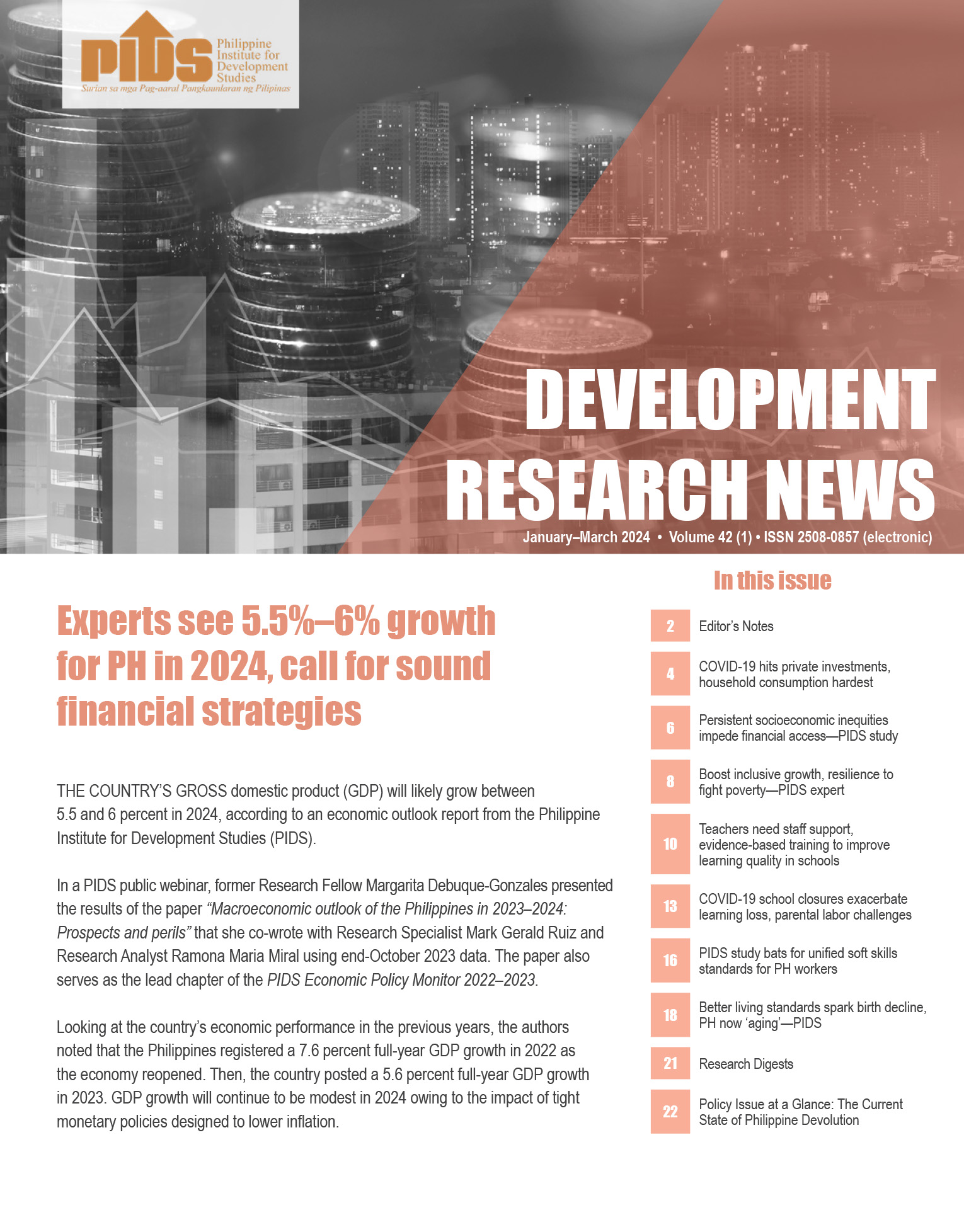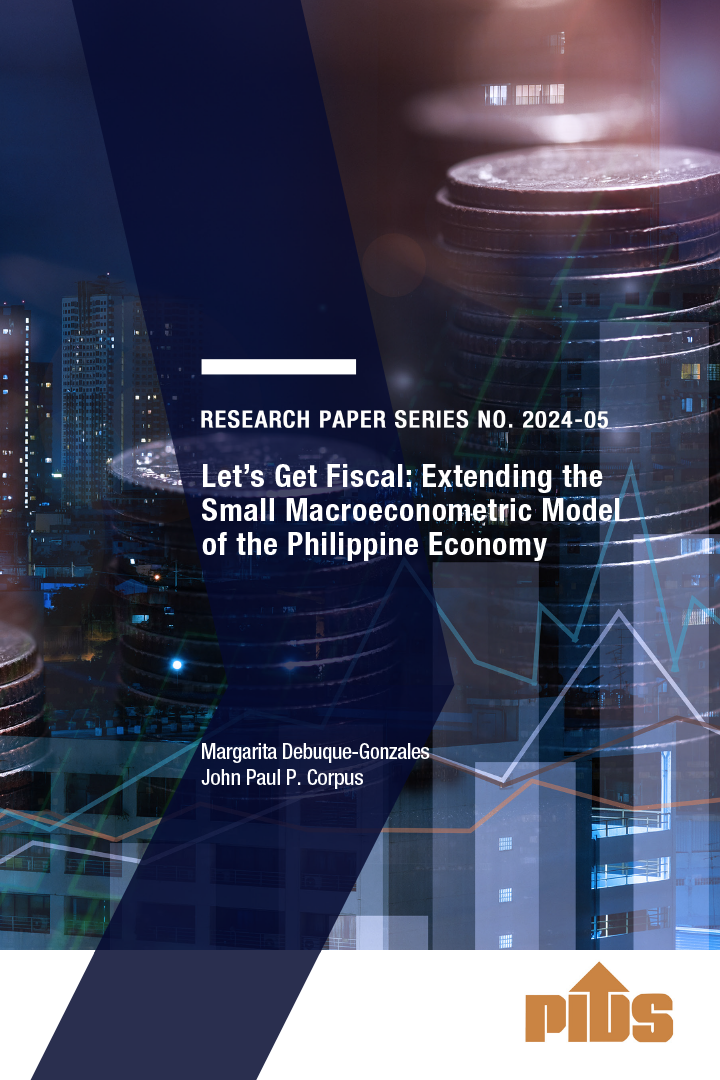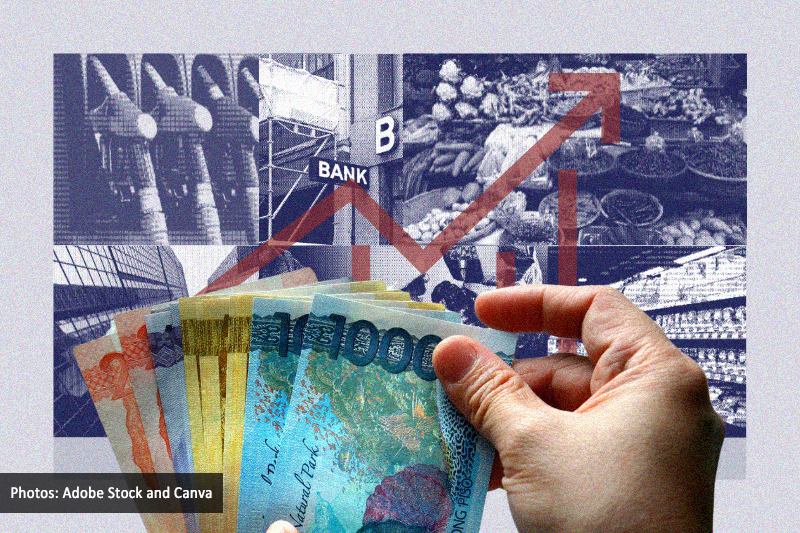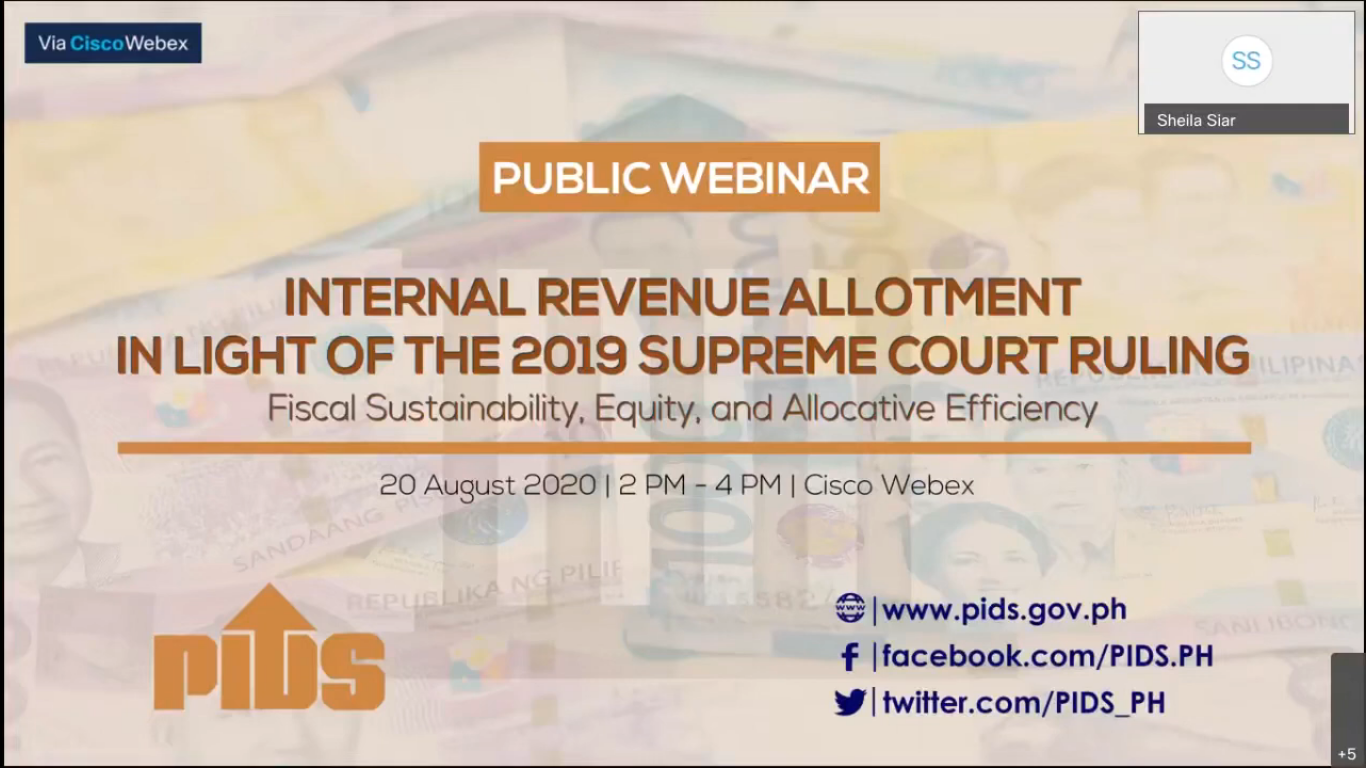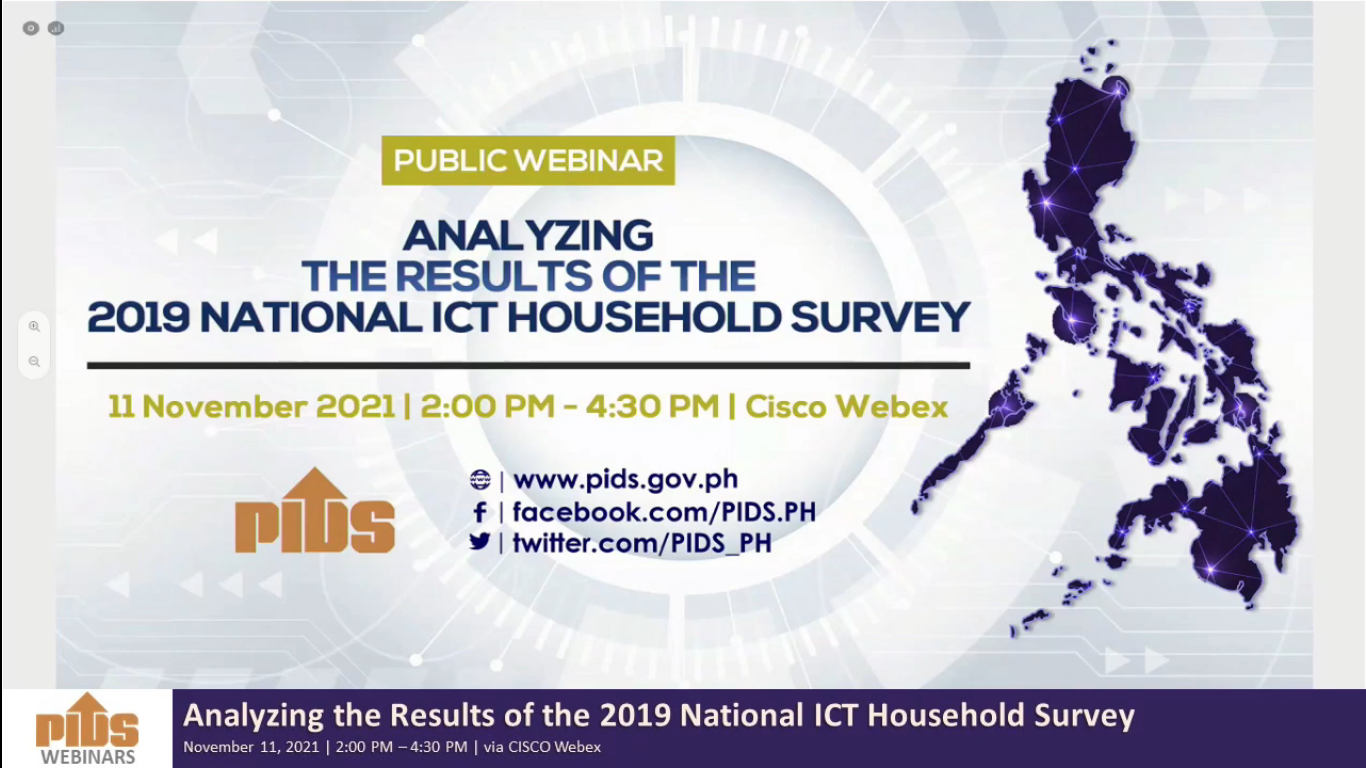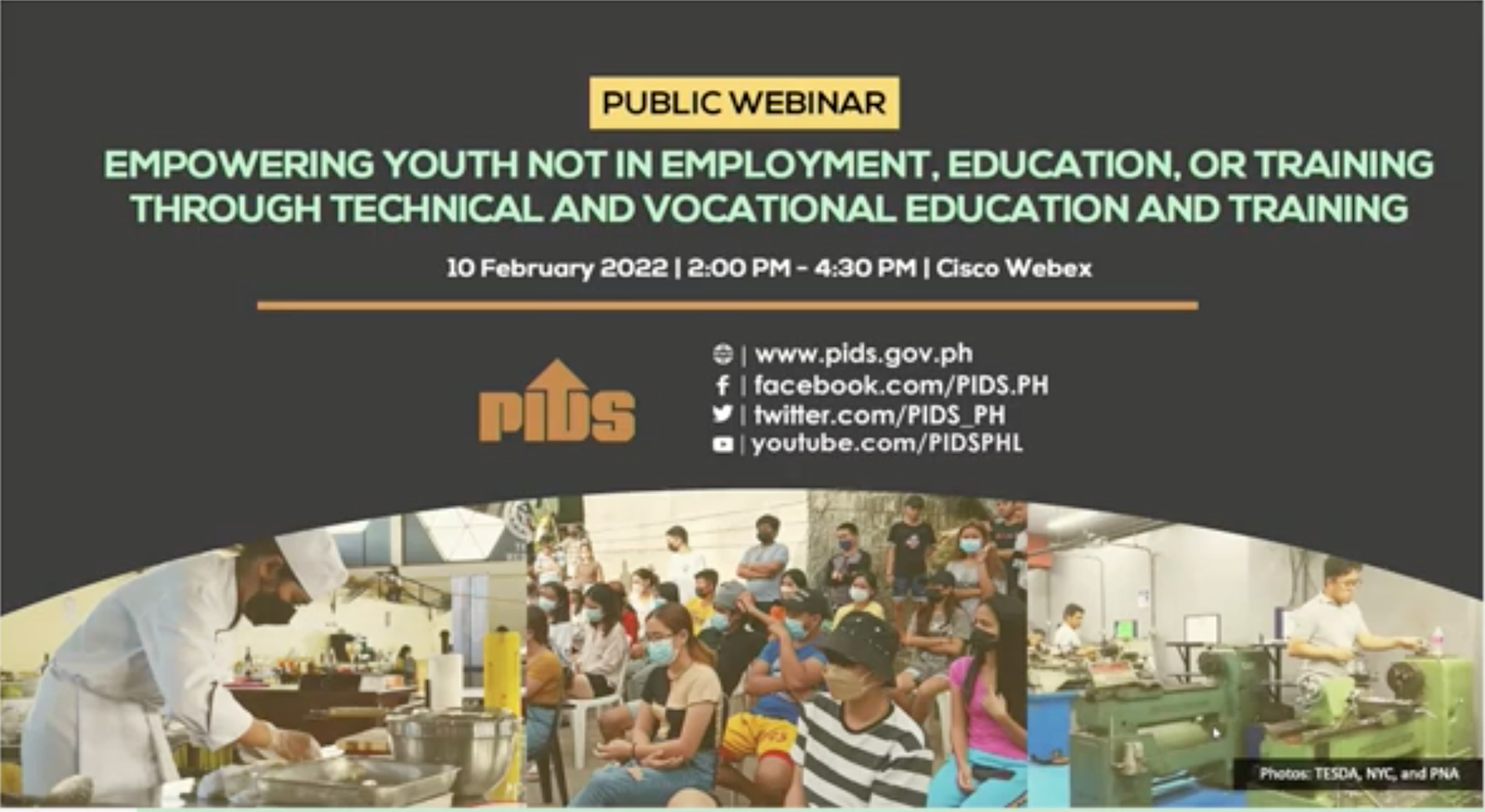RETURNING to the prepandemic debt-to-GDP level should not be rushed as the government should prioritize spending for the country’s economic recovery, researchers from the Philippine Institute for Development Studies (PIDS) said.
PIDS Senior Research Fellow Margarita Debuque-Gonzales said the government may also implement a “light” fiscal consolidation plan to reduce debt as a share of the economy in the near term, as the government may also need to spend to recover from the impact of the Covid-19 pandemic.
The national government’s debt-to-GDP ratio in the first quarter of the year rose to 63.5 percent, the highest since 2005’s 60.5 percent under the Arroyo administration. This is also above the internationally recommended 60-percent threshold by multilateral lenders for emerging markets like the Philippines.
“What we’re saying is that you can have a light fiscal consolidation right now because we need to spend so that we don’t need to be too hung up on that in the near term because we also need to spend for recovery,” Debuque-Gonzales told reporters in an interview after briefing officials from the Department of Finance (DOF) on their study “Fiscal Effects of the COVID-19 Pandemic: Assessing Public Debt Sustainability in the Philippines.”
PIDS Research Fellow and Philippine Economic Society President Charlotte Justine Diokno-Sicat, one of the study authors, said that what they specified in their study are possible scenarios on how long will it take and what fiscal adjustments are needed per scenario to bring down debt-to-GDP ratio to prepandemic level of 40 percent.
“But there’s really no rush. We have to take care first of the economy…,” Sicat said.
In their study, PIDS researchers said “reaching the target debt ratio by 2031 may be difficult given the large fiscal adjustments that this would involve,” particularly annual primary balance increases from 1.4 percent to 3.4 percent of GDP (from the most optimistic scenario to the most pessimistic scenario). Primary balance refers to fiscal balance excluding net interest payments on public debt.
To achieve annual primary balance increases, the government can resort to increasing revenues, cutting primary spending, or a combination of both. Given this, the researchers said “achieving the debt target later than 2031 appears more feasible, especially as there is need for further spending to prevent economic scarring.”
Should the country not immediately revert to the prepandemic debt ratio, Debuque-Gonzales said there might be a risk of a credit rating downgrade, but added that the government and economic managers may address this by showing the credit raters that the country’s fiscal situation is still fine even at that rate, and that there is a commitment to bring down the debt as a share of the economy.
The DOF recently unveiled its proposed fiscal consolidation and resource mobilization plan seen to generate a total average of nearly P350 billion per year from 2023 to 2027 to help the country outgrow its debt at a faster rate. The three-package proposed fiscal consolidation and resource mobilization plan includes the imposition of several taxes, 3-year deferment of the second tranche of reduction in personal income tax rates, and the expansion of value-added tax (VAT) base and removal of VAT exemptions—except for education, agricultural products, health, financial sector, and raw food, among others.
Estimated to generate an annual average of P349.3 billion in revenues, the proposed fiscal consolidation plan will not only help the government accomplish this but it will also help the country reduce its debt as a share of its economy from the projected 60.7 percent this year to 55.4 percent in 2025. Without the reforms, the country’s debt-to-GDP ratio in 2025 is seen to reach 58.2 percent.
Finance Secretary Carlos G. Dominguez III earlier warned that there may be “serious and spiraling consequences” to the country’s financial and economic health if the fiscal consolidation plan is not pursued.
Finance Officer-In-Charge Undersecretary Valery Joy Brion of the department’s Strategy, Economics, and Results Group said fiscal and economic crises may ultimately result from doing away or even just diluting the proposed fiscal consolidation plan. However, incoming Finance chief Benjamin Diokno, who is currently the Bangko Sentral ng Pilipinas governor, said he intends to focus on streamlining tax administration before deciding on whether the country needs new taxes as part of its fiscal consolidation plan.

